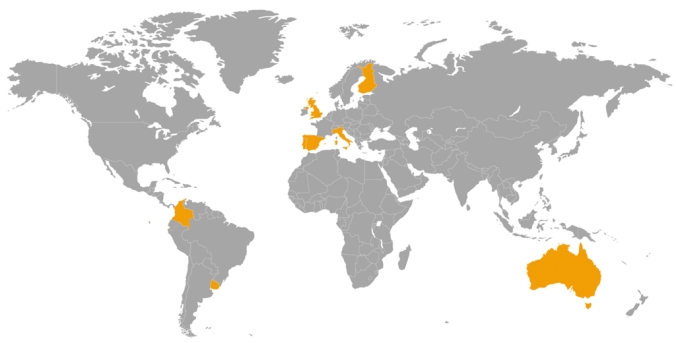
The following institutions participate in the TRANSMEDIA LITERACY project:
- Universitat Pompeu Fabra (Spain) (Coordination)
- Universitat Oberta de Catalunya (Spain)
- Oxford Internet Institute, University of Oxford (United Kingdom)
- University of Jyväskylä (Finland)
- Universidade do Minho (Portugal)
- Universidad de la República (Uruguay)
- Pontificia Universidad Javeriana (Colombia)
- Università degli Studi di Torino (Italy)
- Indire (Italy)
- Ars Media (Italy)
With the collaboration of RMIT University (Australia)
Researchers
Carlos A. Scolari (Principal Investigator) – Universitat Pompeu Fabra (Barcelona) 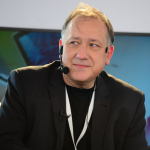 – Carlos A. Scolari has a Ph.D. in Applied Linguistics and Communication Languages (Catholic University of Milan, Italy) and a Degree in Social Communication (University of Rosario, Argentina). He is Associate Professor (tenure) at the Department of Communication of the University Pompeu Fabra (Barcelona, Spain). Researcher specialized in transmedia storytelling, collaborative culture, user-generated contents, narratology, and semiotics of new media. He coordinated the Latin American Network of Digital Communication (ICOD Network) / Digital Communicators Project – ALFA Programme (2004-06). Author of 15 books about digital media, theories of communication and semiotics of media. His articles have been published in New Media and Society, Communication Theory, International Journal of Communication, Semiotica, Information, Communication & Society, Comunicación y Sociedad, etc. Professor in different master and PhD courses in Europe and Latin America.
– Carlos A. Scolari has a Ph.D. in Applied Linguistics and Communication Languages (Catholic University of Milan, Italy) and a Degree in Social Communication (University of Rosario, Argentina). He is Associate Professor (tenure) at the Department of Communication of the University Pompeu Fabra (Barcelona, Spain). Researcher specialized in transmedia storytelling, collaborative culture, user-generated contents, narratology, and semiotics of new media. He coordinated the Latin American Network of Digital Communication (ICOD Network) / Digital Communicators Project – ALFA Programme (2004-06). Author of 15 books about digital media, theories of communication and semiotics of media. His articles have been published in New Media and Society, Communication Theory, International Journal of Communication, Semiotica, Information, Communication & Society, Comunicación y Sociedad, etc. Professor in different master and PhD courses in Europe and Latin America.
Joan Ferrés Prats – Universitat Pompeu Fabra (Barcelona) 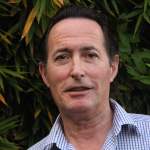 – Joan Ferrés Prats has a Ph.D in Information Sciences (Autonomous University of Barcelona), a Degree in Information Sciences (Autonomous University of Barcelona) and a Degree of Teacher in Primary Education (Barcelona University). He is Associate Professor (tenure) at the Department of Communication of the University Pompeu Fabra (Barcelona, Spain). Researcher specialized in media literacy, communication and education and emotional competence. He has been the PI of different projects related with media literacy as Undergraduate teaching faced with the audiovisual communication competence in a digital environment and Evaluation of the media competence of Spanish citizenship.
– Joan Ferrés Prats has a Ph.D in Information Sciences (Autonomous University of Barcelona), a Degree in Information Sciences (Autonomous University of Barcelona) and a Degree of Teacher in Primary Education (Barcelona University). He is Associate Professor (tenure) at the Department of Communication of the University Pompeu Fabra (Barcelona, Spain). Researcher specialized in media literacy, communication and education and emotional competence. He has been the PI of different projects related with media literacy as Undergraduate teaching faced with the audiovisual communication competence in a digital environment and Evaluation of the media competence of Spanish citizenship.
Óliver Pérez Latorre – Universitat Pompeu Fabra (Barcelona) 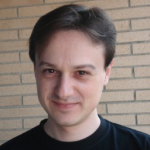 – Oliver Pérez Latorre has a Ph.D. in Social Communication (University Pompeu Fabra, 2010) and a Degree in Audiovisual Communication (UPF, 2002). He is Lecturer at the Department of Communication of the University Pompeu Fabra (Barcelona, Spain). His work is focused on game studies, studies of visual language and audiovisual narrative and new trends of popular culture in audiovisual media. He has published the book El Lenguaje Videolúdico. Análisis de la significación del videojuego (The Videoludic Language. Analysis of videogame signification) (2012).
– Oliver Pérez Latorre has a Ph.D. in Social Communication (University Pompeu Fabra, 2010) and a Degree in Audiovisual Communication (UPF, 2002). He is Lecturer at the Department of Communication of the University Pompeu Fabra (Barcelona, Spain). His work is focused on game studies, studies of visual language and audiovisual narrative and new trends of popular culture in audiovisual media. He has published the book El Lenguaje Videolúdico. Análisis de la significación del videojuego (The Videoludic Language. Analysis of videogame signification) (2012).
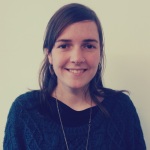 Maria-Jose Masanet – Universitat Pompeu Fabra (Barcelona) – Maria-Jose Masanet has a Ph.D. in Social Communication (University Pompeu Fabra, 2015), a Degree in Audiovisual Communication (Pompeu Fabra University, Spain), a MA in Social Communication (Pompeu Fabra University, Spain) and a MA in Secondary and Upper Secondary Education, Vocational Training and Foreign Language Teaching (Technical University of Catalonia, Spain). She is researcher at the Pompeu Fabra University. She has been visiting researcher at the Loughborough University (2013), at the Universidad Central de Venezuela (2014), at the Université Sorbonne Nouvelle Paris 3 (2015) and at the Centre de Liaison de l’Enseignement et des Médias d’Information (2015) . Her main research lines are related with media education, adolescence, series and the representation of sexuality and love relationships in the media. Email: mjose.masanet@upf.edu
Maria-Jose Masanet – Universitat Pompeu Fabra (Barcelona) – Maria-Jose Masanet has a Ph.D. in Social Communication (University Pompeu Fabra, 2015), a Degree in Audiovisual Communication (Pompeu Fabra University, Spain), a MA in Social Communication (Pompeu Fabra University, Spain) and a MA in Secondary and Upper Secondary Education, Vocational Training and Foreign Language Teaching (Technical University of Catalonia, Spain). She is researcher at the Pompeu Fabra University. She has been visiting researcher at the Loughborough University (2013), at the Universidad Central de Venezuela (2014), at the Université Sorbonne Nouvelle Paris 3 (2015) and at the Centre de Liaison de l’Enseignement et des Médias d’Information (2015) . Her main research lines are related with media education, adolescence, series and the representation of sexuality and love relationships in the media. Email: mjose.masanet@upf.edu
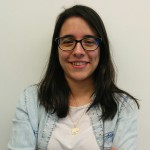 Mar Guerrero – Universitat Pompeu Fabra (Barcelona) – Mar Guerrero works as a research assistant at Universitat Pompeu Fabra (Spain). She holds a PhD in Social Communication (Universitat Pompeu Fabra, 2016), a MA in Communication and Creative Industries (Universidade de Santiago de Compostela, 2010) and a BA in Journalism (Universidad de Navarra, 2007). Her articles have been published in journals such as Communication & Society, Signo y Pensamiento, Comunicación y Sociedad (Mexico) and Palabra Clave. Her research interests include transmedia storytelling, online fandom, television shows and social media.
Mar Guerrero – Universitat Pompeu Fabra (Barcelona) – Mar Guerrero works as a research assistant at Universitat Pompeu Fabra (Spain). She holds a PhD in Social Communication (Universitat Pompeu Fabra, 2016), a MA in Communication and Creative Industries (Universidade de Santiago de Compostela, 2010) and a BA in Journalism (Universidad de Navarra, 2007). Her articles have been published in journals such as Communication & Society, Signo y Pensamiento, Comunicación y Sociedad (Mexico) and Palabra Clave. Her research interests include transmedia storytelling, online fandom, television shows and social media.
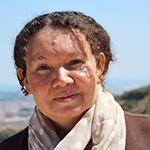 Nohemi Lugo Rodríguez – Universitat Pompeu Fabra (Barcelona) – Nohemi Lugo has a PhD on Transmedia Storytelling and Education (Department of Communication, UPF).She has a Master’s Degree in Literature from Western Michigan University, USA and, a Bachelor’s Degree in Communication from Tecnológico de Monterrey, Mexico. She is an associate professor at the Department of Communication and Digital Arts at the Tecnológico de Monterrey in Queretaro, Mexico. She has published “Relato digital. Continuidad y rompimiento en la narrativa” (Digital Storytelling: continuity and change in narrative). Her studies focus on collective, interactive and transmedia storytelling, as well as media literacy in formal education settings.
Nohemi Lugo Rodríguez – Universitat Pompeu Fabra (Barcelona) – Nohemi Lugo has a PhD on Transmedia Storytelling and Education (Department of Communication, UPF).She has a Master’s Degree in Literature from Western Michigan University, USA and, a Bachelor’s Degree in Communication from Tecnológico de Monterrey, Mexico. She is an associate professor at the Department of Communication and Digital Arts at the Tecnológico de Monterrey in Queretaro, Mexico. She has published “Relato digital. Continuidad y rompimiento en la narrativa” (Digital Storytelling: continuity and change in narrative). Her studies focus on collective, interactive and transmedia storytelling, as well as media literacy in formal education settings.
 María José Establés – Universitat Pompeu Fabra (Barcelona) – María José Establés works as predoctoral researcher at Pompeu Fabra University. Her PhD is founded by the Ministry of Economy of Spain. She holds a B.A. in Communication Studies (UCM ), an M.A. in Journalism (UCM) and a M.A. Communication and Learning in the Digital Society (UAH). She has also been a visiting researcher at the Agora Game Lab at University of Jyväskylä (Finland), participating in several research projects on media education in Finnish and Spanish schools. She has been a visiting researcher at Bournemouth University (UK) for six months too. Her research interests are focused on fandom and online communities, with special interest in fan content for social, pedagogical and political purposes. In addition, she has published articles and chapters about online journalism, e-politics and audiovisual narrative.
María José Establés – Universitat Pompeu Fabra (Barcelona) – María José Establés works as predoctoral researcher at Pompeu Fabra University. Her PhD is founded by the Ministry of Economy of Spain. She holds a B.A. in Communication Studies (UCM ), an M.A. in Journalism (UCM) and a M.A. Communication and Learning in the Digital Society (UAH). She has also been a visiting researcher at the Agora Game Lab at University of Jyväskylä (Finland), participating in several research projects on media education in Finnish and Spanish schools. She has been a visiting researcher at Bournemouth University (UK) for six months too. Her research interests are focused on fandom and online communities, with special interest in fan content for social, pedagogical and political purposes. In addition, she has published articles and chapters about online journalism, e-politics and audiovisual narrative.
Elisenda Ardevol – Universitat Oberta de Catalunya (Barcelona) 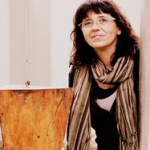 – Dr. Elisenda Ardévol is Associate Professor at the Department of Arts and Humanities at the Open University of Catalonia where she teaches Social and Cultural Anthropology and Qualitative Methods in the Social Sciences. She also collaborates with the Ph.D. International Interdisciplinary Program in the Information and Knowledge Society (UOC) and post-graduate courses in Visual and Digital Anthropology. Her main research lines are related with digital ethnography, experience, sensoriality, visuality and media. Recently she has explored creativity and participatory practices in digital culture. Her publications in these topics include scientific articles, books and book’s chapters around ethnography, visual methodologies, e-research, playful practices and public’s media production. Currently, she is coordinator of the Digital Culture Interdisciplinary Research Group Mediaccions, founder member of the Media Anthropology Network of the EASA (European Social Anthropologists Association) and chair of the Section of Digital Culture and Communication ECREA (European Communication Research and Education Association).
– Dr. Elisenda Ardévol is Associate Professor at the Department of Arts and Humanities at the Open University of Catalonia where she teaches Social and Cultural Anthropology and Qualitative Methods in the Social Sciences. She also collaborates with the Ph.D. International Interdisciplinary Program in the Information and Knowledge Society (UOC) and post-graduate courses in Visual and Digital Anthropology. Her main research lines are related with digital ethnography, experience, sensoriality, visuality and media. Recently she has explored creativity and participatory practices in digital culture. Her publications in these topics include scientific articles, books and book’s chapters around ethnography, visual methodologies, e-research, playful practices and public’s media production. Currently, she is coordinator of the Digital Culture Interdisciplinary Research Group Mediaccions, founder member of the Media Anthropology Network of the EASA (European Social Anthropologists Association) and chair of the Section of Digital Culture and Communication ECREA (European Communication Research and Education Association).
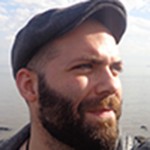 Israel Márquez – Universitat Oberta de Catalunya (Barcelona) – Israel Márquez has a Ph.D in Information Sciences (Complutense University of Madrid/Extraordinary Ph.D Award 2012/2013), a Master in Information and Knowledge Society (Open University of Catalonia), and a Degree in Journalism (Complutense University of Madrid). He has been visiting researcher at the School of Literature, Media & Communication (Georgia Institute of Technology) and at the IT University of Copenhagen. He is now a Postdoctoral Researcher at the Open University of Catalonia (Juan de la Cierva Research Grant Program – Spanish Government) and member of the Digital Culture Interdisciplinary Research Group Mediaccions. He has published the book Una genealogía de la pantalla. Del cine al teléfono móvil (A Genealogy of the Screen. From Cinema to Mobile Phone) (Anagrama, 2015).
Israel Márquez – Universitat Oberta de Catalunya (Barcelona) – Israel Márquez has a Ph.D in Information Sciences (Complutense University of Madrid/Extraordinary Ph.D Award 2012/2013), a Master in Information and Knowledge Society (Open University of Catalonia), and a Degree in Journalism (Complutense University of Madrid). He has been visiting researcher at the School of Literature, Media & Communication (Georgia Institute of Technology) and at the IT University of Copenhagen. He is now a Postdoctoral Researcher at the Open University of Catalonia (Juan de la Cierva Research Grant Program – Spanish Government) and member of the Digital Culture Interdisciplinary Research Group Mediaccions. He has published the book Una genealogía de la pantalla. Del cine al teléfono móvil (A Genealogy of the Screen. From Cinema to Mobile Phone) (Anagrama, 2015).
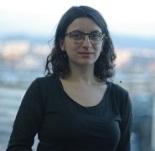 Débora Lanzeni – Universitat Oberta de Catalunya (Barcelona) – Social and Cultural Anthropologist (UBA) holds an interdisciplinary Phd. in Information and Knowledge Society (international mention). She is currently a junior researcher at the Universitat Oberta de Catalunya and member of mediaccions research group. Her training has been in anthropology, filmmaking and incorporates visual and digital anthropology. Her research focuses upon understanding how digital technology and its processes of creation, imagination and production are being made in the context of Urban Labs. She is currently focusing on developments of interface of Smart City and Internet-of-things, the study of materiality, moral orders and future. She has proven experience conducting ethnographic studies in the market and her expertise is working with technology developers and designers.
Débora Lanzeni – Universitat Oberta de Catalunya (Barcelona) – Social and Cultural Anthropologist (UBA) holds an interdisciplinary Phd. in Information and Knowledge Society (international mention). She is currently a junior researcher at the Universitat Oberta de Catalunya and member of mediaccions research group. Her training has been in anthropology, filmmaking and incorporates visual and digital anthropology. Her research focuses upon understanding how digital technology and its processes of creation, imagination and production are being made in the context of Urban Labs. She is currently focusing on developments of interface of Smart City and Internet-of-things, the study of materiality, moral orders and future. She has proven experience conducting ethnographic studies in the market and her expertise is working with technology developers and designers.
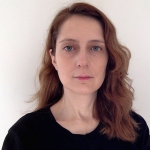 Rebecca Eynon – Oxford Internet Institute, University of Oxford (UK) – Rebecca Eynon is an Associate Professor and Senior Research Fellow at the University of Oxford, where she holds a joint appointment between the Oxford Internet Institute (OII) and the Department of Education. Since 2000 her research has focused on education, learning and inequalities. Her work has been supported by a range of funders including the British Academy, BECTA, the EC, the Economic and Social Research Council and the NominetTrust. Rebecca is co-editor of Learning, Media and Technology. Her recent publications include Teenagers and Technology (Routledge, 2013). Prior to joining Oxford in 2005 Rebecca held positions as an ESRC Postdoctoral Fellow, Department of Sociology, City University (2004-2005); as a Research Fellow, Department of Education, University of Birmingham (1999-2000) and as a Researcher and part-time Lecturer, Centre for Mass Communication Research, University of Leicester (1997-1999).
Rebecca Eynon – Oxford Internet Institute, University of Oxford (UK) – Rebecca Eynon is an Associate Professor and Senior Research Fellow at the University of Oxford, where she holds a joint appointment between the Oxford Internet Institute (OII) and the Department of Education. Since 2000 her research has focused on education, learning and inequalities. Her work has been supported by a range of funders including the British Academy, BECTA, the EC, the Economic and Social Research Council and the NominetTrust. Rebecca is co-editor of Learning, Media and Technology. Her recent publications include Teenagers and Technology (Routledge, 2013). Prior to joining Oxford in 2005 Rebecca held positions as an ESRC Postdoctoral Fellow, Department of Sociology, City University (2004-2005); as a Research Fellow, Department of Education, University of Birmingham (1999-2000) and as a Researcher and part-time Lecturer, Centre for Mass Communication Research, University of Leicester (1997-1999).
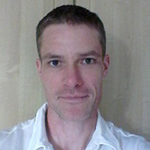 Huw Davies – Oxford Internet Institute, University of Oxford (UK) – Huw Davis has a PhD in Web Science and specialises in combining mixed, digital and ethnographic, methods with sociological theory to study digital literacies and practices in relation to social structures and inequality. In practice this means: borrowing methods from computer science; comparing and evaluating digital data with qualitative data; and using Bourdieu, Foucault, and STS theory to interpret the results.
Huw Davies – Oxford Internet Institute, University of Oxford (UK) – Huw Davis has a PhD in Web Science and specialises in combining mixed, digital and ethnographic, methods with sociological theory to study digital literacies and practices in relation to social structures and inequality. In practice this means: borrowing methods from computer science; comparing and evaluating digital data with qualitative data; and using Bourdieu, Foucault, and STS theory to interpret the results.
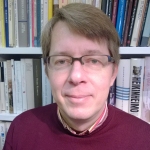 Raine Koskimaa – University Of Jyväskylä (Finland) – PhD Raine Koskimaa, professor of contemporary culture, conducts research in the fields of digital textuality, programmable media, and game studies. He has published widely around the issues of digital literature, game studies, and narratology. He is the co-founder and co-editor of the Cybertext Yearbook (http://cybertext.hum.jyu.fi), member of the Literary Advisory Board for the Electronic Literature Organization and the Review Board for Gamestudies.
Raine Koskimaa – University Of Jyväskylä (Finland) – PhD Raine Koskimaa, professor of contemporary culture, conducts research in the fields of digital textuality, programmable media, and game studies. He has published widely around the issues of digital literature, game studies, and narratology. He is the co-founder and co-editor of the Cybertext Yearbook (http://cybertext.hum.jyu.fi), member of the Literary Advisory Board for the Electronic Literature Organization and the Review Board for Gamestudies.
Tero Kerttula – University Of Jyväskylä (Finland) 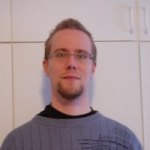 – Tero Kerttula holds an MA degree in Art Education, and he is currently writing his PhD Dissertation Thesis on Young Adults as Game Video Producers and Audience.
– Tero Kerttula holds an MA degree in Art Education, and he is currently writing his PhD Dissertation Thesis on Young Adults as Game Video Producers and Audience.
…
…
Aino Kaisa Koistinen – University Of Jyväskylä (Finland) 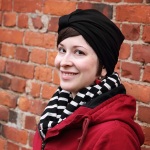 – Aino Kaisa Koistinen is postgraduate student in The Gender Studies Doctoral Programme (GSDP), University of Helsinki, Finland (2012–2015). Her PhD project discusses gender and humanity in science fiction.
– Aino Kaisa Koistinen is postgraduate student in The Gender Studies Doctoral Programme (GSDP), University of Helsinki, Finland (2012–2015). Her PhD project discusses gender and humanity in science fiction.
…
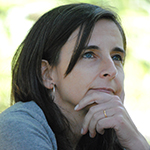 Sara Pereira – Universidade do Minho (Portugal) – Sara Pereira is assistant professor at the Communication Sciences Department at the University of Minho (Braga, Portugal) and researcher at the Society and Communication Research Centre. She holds a PhD in Education Sciences based in a research on television for children presented in 2004. She lectures in the areas of Media Literacy, Reception Studies and Media, Participation and Citizenship. She has been involved in national and European research projects, either as principal investigator or as a team member, on topics of children, young people and media, media literacy and technological policies for education. These are also some of the main topics of her publications in scientific journals and books. Currently she is Director of the Communication and Sciences Department and she also directs the Master’s Degree on ‘Communication, Citizenship and Education’. Email: sarapereira@ics.uminho.pt
Sara Pereira – Universidade do Minho (Portugal) – Sara Pereira is assistant professor at the Communication Sciences Department at the University of Minho (Braga, Portugal) and researcher at the Society and Communication Research Centre. She holds a PhD in Education Sciences based in a research on television for children presented in 2004. She lectures in the areas of Media Literacy, Reception Studies and Media, Participation and Citizenship. She has been involved in national and European research projects, either as principal investigator or as a team member, on topics of children, young people and media, media literacy and technological policies for education. These are also some of the main topics of her publications in scientific journals and books. Currently she is Director of the Communication and Sciences Department and she also directs the Master’s Degree on ‘Communication, Citizenship and Education’. Email: sarapereira@ics.uminho.pt
 Manuel Pinto – Universidade do Minho (Portugal) – Manuel Pinto is full professor at the Institute of Social Sciences, University of Minho. His PhD in Communication Sciences was based in research on TV in the daily lives of children, presented in 1996. He lectures in the areas of Media Literacy and Journalism Studies and has been developing research on Media Literacy, Media Sociology and Communication Policy. He has coordinated the Portuguese component of EMEDUS project (European Media Literacy Education Study), funded by the European Commission. He is director of the Ph.D. programme in Communication Sciences and is a board member of the Communication and Society Research Centre. He was elected member of the General Council of the University of Minho and joined the Independent General Council of Radio and Television of Portugal S.A. in 2014. Email: mpinto@ics.uminho.pt
Manuel Pinto – Universidade do Minho (Portugal) – Manuel Pinto is full professor at the Institute of Social Sciences, University of Minho. His PhD in Communication Sciences was based in research on TV in the daily lives of children, presented in 1996. He lectures in the areas of Media Literacy and Journalism Studies and has been developing research on Media Literacy, Media Sociology and Communication Policy. He has coordinated the Portuguese component of EMEDUS project (European Media Literacy Education Study), funded by the European Commission. He is director of the Ph.D. programme in Communication Sciences and is a board member of the Communication and Society Research Centre. He was elected member of the General Council of the University of Minho and joined the Independent General Council of Radio and Television of Portugal S.A. in 2014. Email: mpinto@ics.uminho.pt
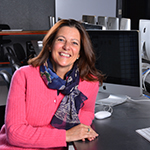 Rosalía Winocur – Universidad de la República (Uruguay) – Rosalía Winocur has a Master in Social Sciences from FLACSO, and a PhD in Anthropological Sciences from Mexico’s Universidad Autónoma Metropolitana (UAM). She is a Researcher Professor in the UAM’s Education and Communication Department, and Visiting Professor in the Communication Faculty in Uruguay’s Universidad de la República (UDELAR). She is a member of Mexico’s Sistema Nacional de Investigadores (“National Researchers System”) and of the Academia Mexicana de las Ciencias (“Mexican Sciences Academy”). In the last five years she has conducted research on digital inclusion public policies and programs in the region, particularly those related to Uno a Uno programs (“One lap, one child”). She is currently coordinating, along with Néstor García Canclini and Eduardo Nivón, the project De la Galaxia de Gutenberg a la Nube de Android. Cambios en los modos de leer en México. (“From Gutemberg Galaxy to Android’s Cloud. Transformations in Mexico’s modes of reading”).
Rosalía Winocur – Universidad de la República (Uruguay) – Rosalía Winocur has a Master in Social Sciences from FLACSO, and a PhD in Anthropological Sciences from Mexico’s Universidad Autónoma Metropolitana (UAM). She is a Researcher Professor in the UAM’s Education and Communication Department, and Visiting Professor in the Communication Faculty in Uruguay’s Universidad de la República (UDELAR). She is a member of Mexico’s Sistema Nacional de Investigadores (“National Researchers System”) and of the Academia Mexicana de las Ciencias (“Mexican Sciences Academy”). In the last five years she has conducted research on digital inclusion public policies and programs in the region, particularly those related to Uno a Uno programs (“One lap, one child”). She is currently coordinating, along with Néstor García Canclini and Eduardo Nivón, the project De la Galaxia de Gutenberg a la Nube de Android. Cambios en los modos de leer en México. (“From Gutemberg Galaxy to Android’s Cloud. Transformations in Mexico’s modes of reading”).
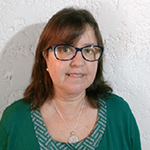 María Gladys Ceretta Soria – Universidad de la República (Uruguay) – María Gladys Ceretta Soria has a PhD in Documentation and a Master in Investigation Research at University Carlos III of Madrid, Spain. She also has a degree in Library Science at Universidad de la República (Uruguay). She is a full-time teacher (Grade 5) and a researcher in the Information Institute of the Information and Communication Faculty at Universidad de la República (Uruguay). Researcher specialized in Information Literacy, Reading and Reading Competencies; evaluation of information resources; scientific production and open access policies. Active Researcher, Level 1, National Researcher System, Uruguay. She belongs to researcher teams in Brazil, Spain and Portugal.
María Gladys Ceretta Soria – Universidad de la República (Uruguay) – María Gladys Ceretta Soria has a PhD in Documentation and a Master in Investigation Research at University Carlos III of Madrid, Spain. She also has a degree in Library Science at Universidad de la República (Uruguay). She is a full-time teacher (Grade 5) and a researcher in the Information Institute of the Information and Communication Faculty at Universidad de la República (Uruguay). Researcher specialized in Information Literacy, Reading and Reading Competencies; evaluation of information resources; scientific production and open access policies. Active Researcher, Level 1, National Researcher System, Uruguay. She belongs to researcher teams in Brazil, Spain and Portugal.
Carlos Barreneche – Pontificia Universidad Javeriana (Colombia) 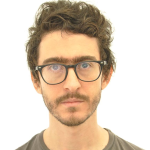 – Carlos Barreneche is an Assistant Professor at Universidad Javeriana (Colombia) Communication Department. He received his PhD at CAMRI, University of Westminster (UK) in 2012. He also received degrees in Philosophy and Psychology. His articles have appeared in journals such as Convergence: The International Journal of Research into New Media Technologies, Computational Culture, and Media, Culture & Society.
– Carlos Barreneche is an Assistant Professor at Universidad Javeriana (Colombia) Communication Department. He received his PhD at CAMRI, University of Westminster (UK) in 2012. He also received degrees in Philosophy and Psychology. His articles have appeared in journals such as Convergence: The International Journal of Research into New Media Technologies, Computational Culture, and Media, Culture & Society.
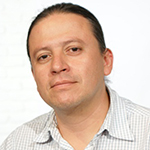 Eduardo Gutiérrez – Pontificia Universidad Javeriana (Colombia) – Eduardo Gutiérrez has a Masters in Communication from the Pontificia Universidad Javeriana and a degree in Languages at the National Pedagogical University. Full-time Assistant Professor in the Department of Communication at Javeriana University. Researcher specialized in communication and education, media and technology use and appropriation in education contexts and history of communication as a social process and as an academic field.
Eduardo Gutiérrez – Pontificia Universidad Javeriana (Colombia) – Eduardo Gutiérrez has a Masters in Communication from the Pontificia Universidad Javeriana and a degree in Languages at the National Pedagogical University. Full-time Assistant Professor in the Department of Communication at Javeriana University. Researcher specialized in communication and education, media and technology use and appropriation in education contexts and history of communication as a social process and as an academic field.
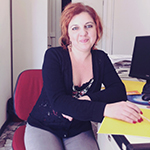 Simona Tirocchi – Università degli Studi di Torino (Italia) – Simona Tirocchi has a Ph.D. in Communication Sciences (Sapienza University of Rome, Italy) and a Degree in Communication Sciences (Sapienza University of Rome, Italy). She is assistant professor at the Department of Philosophy and Educational Sciences of the University of Turin (Italy), where she currently teaches Sociology of education. Researcher specialized in Media education and Media literacy, young people and media, cyberbullying, social representations. She coordinated the Cl@ssi 2.0 project in Piedmont (Italy), whose goal was the integration of digital and web 2.0 technologies in the learning environment. Her recent publications include Sociologie della Media education. Giovani e media al tempo dei nativi digitali (FrancoAngeli, 2013).
Simona Tirocchi – Università degli Studi di Torino (Italia) – Simona Tirocchi has a Ph.D. in Communication Sciences (Sapienza University of Rome, Italy) and a Degree in Communication Sciences (Sapienza University of Rome, Italy). She is assistant professor at the Department of Philosophy and Educational Sciences of the University of Turin (Italy), where she currently teaches Sociology of education. Researcher specialized in Media education and Media literacy, young people and media, cyberbullying, social representations. She coordinated the Cl@ssi 2.0 project in Piedmont (Italy), whose goal was the integration of digital and web 2.0 technologies in the learning environment. Her recent publications include Sociologie della Media education. Giovani e media al tempo dei nativi digitali (FrancoAngeli, 2013).
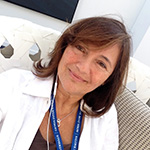 Silvia Amici – Ars Media (Italia) – Silvia Amici has a degree in Social Communication at the University of Rosario (Argentina). She specialized in semiotics and cinema at the University of Bologna. Since 1989 she is the head of Ars Media (www.ars-media.it), a multimedia communication company based in Turin, Italy. She has been the coordinator and director of more than a hundred of titles in the edutainment and communication fields.
Silvia Amici – Ars Media (Italia) – Silvia Amici has a degree in Social Communication at the University of Rosario (Argentina). She specialized in semiotics and cinema at the University of Bologna. Since 1989 she is the head of Ars Media (www.ars-media.it), a multimedia communication company based in Turin, Italy. She has been the coordinator and director of more than a hundred of titles in the edutainment and communication fields.
She has participated in many European projects in the framework of URBAL, ALFA and MEDIA PROGRAMME. She is co-founder of Eclectica (www.eclectica.it) and Pari-Go Onlus (www.pari-go.it). She has been member of the Jury of the international contest eContent and Digital Creativity.
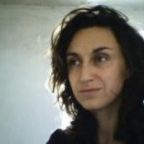
Gabriella Taddeo – Indire (Italia) – Gabriella Taddeo (Ph.D. in Communication Science) is researcher at Indire (National Institute for Documentation, Innovation and Research in the Educational field) and she teaches Social Networking: Technologies and Applications in the Course of Cinema and Media Engineering at the Politecnico di Torino. Her research interests are on the Web 2.0: from media production to the new forms of bottom-up fruition up to the engagement and participatory approach in the learning sphere. She is national coordinator of the European project MENTEP. Mentoring Technology Enhanced Pedagogy (www.mentep.eun.org), which is aimed to empower the digital competences of teachers through a self-assessment approach.
With the collaboration of:
Sarah Pink – RMIT University (Australia) 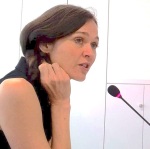 – Sarah Pink has a PhD in Social Anthropology (University of Kent, UK), MA in Visual Anthropology (University of Manchester, UK) and a 1st class BA Hons in Social Anthropology (University of Kent, UK). She is the Professor of Design and Media Ethnography at RMIT University (Australia) 20% Professor of Social Sciences at Loughborough University (UK), 10% Professor of Applied Social and Cultural Analysis at Halmstad University (Sweden), Guest Professor the Free University in Berlin (Germany) honorary and adjunct Professor at Griffith and La Trobe Universities respectively in Australia, and a member of the Mediacions research group at the IN3, Barcelona. Her work is usually interdisciplinary and brings ethnographic methodologies to complex scholarly and applied research questions.
– Sarah Pink has a PhD in Social Anthropology (University of Kent, UK), MA in Visual Anthropology (University of Manchester, UK) and a 1st class BA Hons in Social Anthropology (University of Kent, UK). She is the Professor of Design and Media Ethnography at RMIT University (Australia) 20% Professor of Social Sciences at Loughborough University (UK), 10% Professor of Applied Social and Cultural Analysis at Halmstad University (Sweden), Guest Professor the Free University in Berlin (Germany) honorary and adjunct Professor at Griffith and La Trobe Universities respectively in Australia, and a member of the Mediacions research group at the IN3, Barcelona. Her work is usually interdisciplinary and brings ethnographic methodologies to complex scholarly and applied research questions.
Heather Horst – University of Sydney (Australia) – 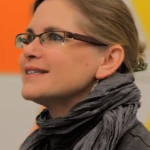 Heather Horst is Professor in the Department of Media in Communications at the University of Sydney. Heather joined the Department in March 2017. Prior to this she was Professor in the School of Media and Communication and the Co-Founder of the Digital Ethnography Research Centre at RMIT University. She sits on the editorial board for New Media & Society, Mobile Media & Communication, Information Technologies & International Development, Journal of Legal Anthropology and Emerald Studies in Media and Communication. Her current research, supported by an ARC Discovery Grant, two ARC Linkage grants and the Smart Services CRC, explores transformations in the telecommunications industry and the emergence of new mobile media practices such as mobile money and locative media across the Asia-Pacific region.
Heather Horst is Professor in the Department of Media in Communications at the University of Sydney. Heather joined the Department in March 2017. Prior to this she was Professor in the School of Media and Communication and the Co-Founder of the Digital Ethnography Research Centre at RMIT University. She sits on the editorial board for New Media & Society, Mobile Media & Communication, Information Technologies & International Development, Journal of Legal Anthropology and Emerald Studies in Media and Communication. Her current research, supported by an ARC Discovery Grant, two ARC Linkage grants and the Smart Services CRC, explores transformations in the telecommunications industry and the emergence of new mobile media practices such as mobile money and locative media across the Asia-Pacific region.
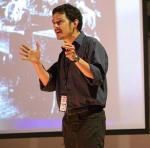 Cristóbal Cobo Romaní – Plan Ceibal (Uruguay) – Cristóbal Cobo (Phd) is a research fellow at the Oxford Internet Institute, University of Oxford, where he coordinates research on innovation, open knowledge initiatives and future of learning research projects. Currently he works on Internet Science and OportUnidad project (funded by European Commission). Cristobal has been distinguished by the British Council of Economic and Social Research (ESRC) and associate research fellow at the Centre on Skills, Knowledge and Organisational Performance, University of Oxford. He was Professor and director of Communication and New Technologies at the Latin American Faculty of Social Sciences, Mexico. He has served as external Evaluator for the Inter-American Development Bank; the National Science Foundation and MIT Press (US), International Labour Organization (UN), and the International Development Research Centre (Canada). Invited Expert for RAND EU in future trends on technology and education commissioned by the Bureau of European Policy Advisors (BEPA). Dr Cobo currently serves on the board of the Global Open Educational Resource (OER) Graduate Network. He has PhD “cum laudem” Communication Sciences at Universitat Autònoma de Barcelona.
Cristóbal Cobo Romaní – Plan Ceibal (Uruguay) – Cristóbal Cobo (Phd) is a research fellow at the Oxford Internet Institute, University of Oxford, where he coordinates research on innovation, open knowledge initiatives and future of learning research projects. Currently he works on Internet Science and OportUnidad project (funded by European Commission). Cristobal has been distinguished by the British Council of Economic and Social Research (ESRC) and associate research fellow at the Centre on Skills, Knowledge and Organisational Performance, University of Oxford. He was Professor and director of Communication and New Technologies at the Latin American Faculty of Social Sciences, Mexico. He has served as external Evaluator for the Inter-American Development Bank; the National Science Foundation and MIT Press (US), International Labour Organization (UN), and the International Development Research Centre (Canada). Invited Expert for RAND EU in future trends on technology and education commissioned by the Bureau of European Policy Advisors (BEPA). Dr Cobo currently serves on the board of the Global Open Educational Resource (OER) Graduate Network. He has PhD “cum laudem” Communication Sciences at Universitat Autònoma de Barcelona.
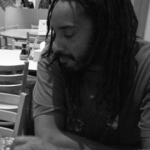 luke gaspard – RMIT University (Australia) – luke gaspard is a researcher, teacher, and offering course coordinator in the School of Media and Communication at RMIT University. His research and teaching interests span television and digital studies with a particular focus on how children and youth incorporate and exploit media in their everyday lives and contexts. He possess a PhD from RMIT University completed in October 2015, a Masters degree from the University of East Anglia, and a BA Hons in Journalism from the University of Eas London. He is also a UK primary school qualified teacher with many years of classroom practice. Typically he works with large data sets (multiples of hundreds) across a range of qualitative tools including creative and productive.
luke gaspard – RMIT University (Australia) – luke gaspard is a researcher, teacher, and offering course coordinator in the School of Media and Communication at RMIT University. His research and teaching interests span television and digital studies with a particular focus on how children and youth incorporate and exploit media in their everyday lives and contexts. He possess a PhD from RMIT University completed in October 2015, a Masters degree from the University of East Anglia, and a BA Hons in Journalism from the University of Eas London. He is also a UK primary school qualified teacher with many years of classroom practice. Typically he works with large data sets (multiples of hundreds) across a range of qualitative tools including creative and productive.
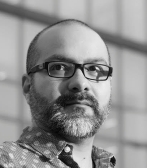 Edgar Gómez – RMIT University (Australia) – Edgar Gómez Cruz is a Vice-Chancellor Postdoctoral Research Fellow at the Digital Ethnography Research Centre, RMIT University. He has published widely on a number of topics relating to digital culture, particularly in the areas of digital photography, digital ethnography and visual methods. His recent publications include the book De la cultura Kodak a la imagen en red. Una etnografía sobre fotografía digital. and the co-edited volumes Digital Photography and Everyday Life. Empirical Studies on Material Visual Practices (Routledge, 2016) with Asko Lehmuskallio and Refiguring Techiques in Visual Digital Research (Palgrave, 2017) with Shanti Sumartojo and Sarah Pink). Gómez Cruz also has several articles in top journals. His current research investigates different manifestations of digital culture in everyday life and digital inequalities, exploring innovative and creative methods, which is funded by a Vice-Chancellor, ECP and FAPESP research grants.
Edgar Gómez – RMIT University (Australia) – Edgar Gómez Cruz is a Vice-Chancellor Postdoctoral Research Fellow at the Digital Ethnography Research Centre, RMIT University. He has published widely on a number of topics relating to digital culture, particularly in the areas of digital photography, digital ethnography and visual methods. His recent publications include the book De la cultura Kodak a la imagen en red. Una etnografía sobre fotografía digital. and the co-edited volumes Digital Photography and Everyday Life. Empirical Studies on Material Visual Practices (Routledge, 2016) with Asko Lehmuskallio and Refiguring Techiques in Visual Digital Research (Palgrave, 2017) with Shanti Sumartojo and Sarah Pink). Gómez Cruz also has several articles in top journals. His current research investigates different manifestations of digital culture in everyday life and digital inequalities, exploring innovative and creative methods, which is funded by a Vice-Chancellor, ECP and FAPESP research grants.